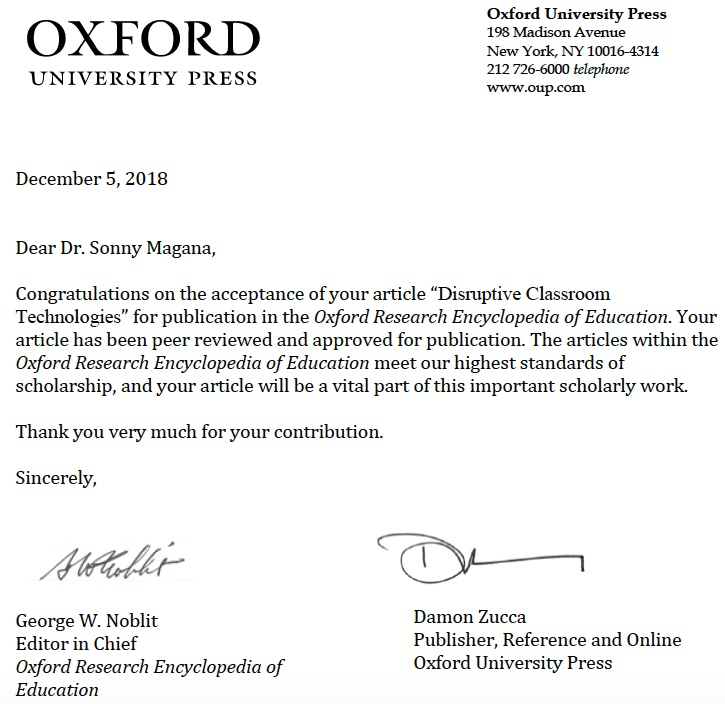Research Matters

Education Research 
It is a tremendous privilege and responsibility to teach students. It’s an even greater privilege and responsibility to teach current and future teachers and leaders. That’s why I’ve dedicated the last 35 years of my life to discovering, evaluating, and sharing the most reliable pathways for accelerating instructional quality and student achievement using modern methods and tools. I’ve published numerous research studies, scholarly articles, and books on the subject (with many more to come). All have been focused on the singular purpose of helping every student, teacher, and education leader realize their potential for transcendent learning. By that I mean to go above and beyond the expectations and limitations that bind us to the “Tell and Practice” model of instruction. The of students dutifully memorizing old knowledge has been a dangerous status quo of minimum proficiency and mechanistic compliance to surface learning. We can do so much better by following the guidance of the best available research findings.
I made the case in a previous post that education research matters. The reason it matters particularly in the digital age is that education systems are awash in evidence-free claims, promises, and outright fabrications. This begs the question, “Have our investments in #EdTech resulted in sufficient ROI? The preponderance of research evidence shows us the answer is a resounding, “No.”
But that is changing. In my book, Disruptive Classroom Technologies, I’ve developed a highly reliable pathway for doubling student academic achievement called the T3 Framework for Innovation. The strategies in the T3 Framework have an observed effect size of ES=1.6, which is equivalent to a quadrupling of student achievement; I’ll say that again: quadrupling student achievement (Haystead & Marzano, 2009; 2010; Haystead & Magana, 2013; Magana & Marzano, 2014; Magana & Marzano, 2015; Magana, 2016; Magana, 2017; Magana, 2018).
Recently I’ve received the above notice that, after a rigorous peer review process, my research findings underpinning the T3 Framework for Innovation were accepted into Oxford University’s inaugural online Research Encyclopedia for Education, or OREE. The article will be available in early 2019 and will be preceded by another blog post.
I am a simple teacher. To have my findings published by what is arguably the global pinnacle of scholarly research is a high honor that is both deeply humbling and gratifying. It is a testament to the gifts of knowledge I’ve gained from my students and teachers. It is also a testament to power of imagination: the epidemic of low-impact technology use is a wicked problem that matters to me; the solution I’ve found, after “failing better” for 35 years, began with imagining a world where student achievement is doubled. I dare you to imagine the same…
Author

Dr. Sonny Magana is an award-winning teacher, best-selling author, and pioneering educational technology researcher. Sonny is a highly sought-after leadership consultant, keynote speaker, and instructional coach who helps educational systems around the world realize the power of transcendent learning. The author of numerous research studies and articles, Sonny’s newest book, Disruptive Classroom Technologies: A Framework for Innovation in Education, was recently published to wide international acclaim.
A tireless advocate for transcending the status quo, Sonny founded and served as Principal of Washington States first CyberSchool in 1996, a groundbreaking blended learning program that continues to meet the needs of at-risk students in Washington. He is a recipient of the prestigious Milken Family Foundation National Educator Award and the Governors Commendation for Educational Excellence.
An avid musician, yoga practitioner, and beekeeper, Sonny holds a bachelor of science degree from Stockton University, a master of education degree from City University (where he was honored with the Presidential Award for meritorious scholarship), an educational administration endorsement, and a doctorate in educational leadership from Seattle University.
